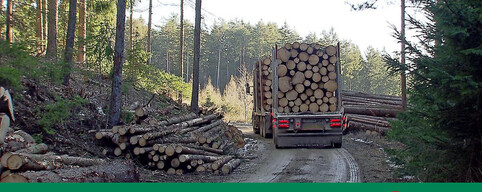

Poland is facing the challenge of adapting forest management to the new realities of dynamic climate change and growing social and economic expectations. In response to these challenges, the government has begun to prepare a national forest management strategy. The document aims to ensure the sustainable development of forests, which play a key role in ecosystems and the country's economy.
The strategy will take 1.5 to 2 years to develop, allowing for in-depth examination and consideration of the various aspects of forest management. Public consultation will play a key role in the strategy development process, allowing the opinions and needs of residents and local communities to be taken into account. The schedule of activities and detailed time frame will be developed as part of this consultation process.
Climate change is one of the greatest challenges for modern forest management. Rising temperatures, changing precipitation and extreme weather events are negatively affecting the condition of forests. In the face of these changes, there is a need to adapt forestry practices to maintain forest health and productivity. Climate change can lead to an increase in hazards such as forest fires, pest infestations and the loss of biodiversity.
Mikołaj Dorożała, the Deputy Minister of Climate and Environment, emphasizes that a key element of the new strategy will be better management of natural resources. Green forests are not only a filter for the air and a source of wood, but also a habitat for many species of plants and animals. The strategy aims not only to respond to economic needs, but also to take care of the natural heritage for future generations.
In light of these challenges, it is necessary to ensure the harmonious development of all forest functions. The introduction of innovative management methods, such as the afforestation of degraded land, the use of green technologies, or the implementation of environmental monitoring systems, can significantly improve the health of forest ecosystems. The work involved in developing the strategy will require close cooperation not only with foresters, but also with scientists and non-governmental organizations to ensure a broad perspective and effective solutions.



